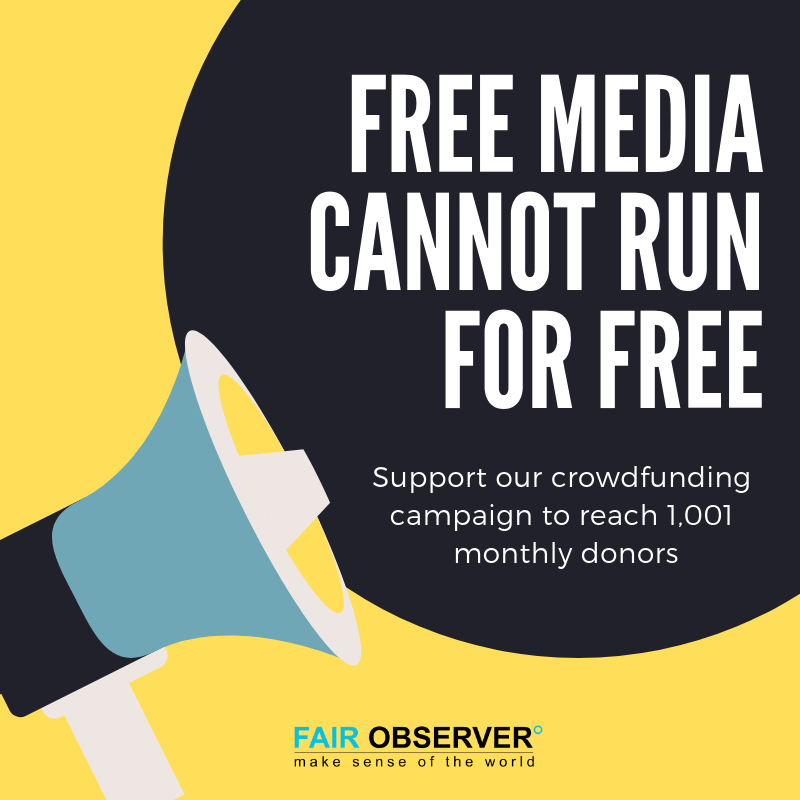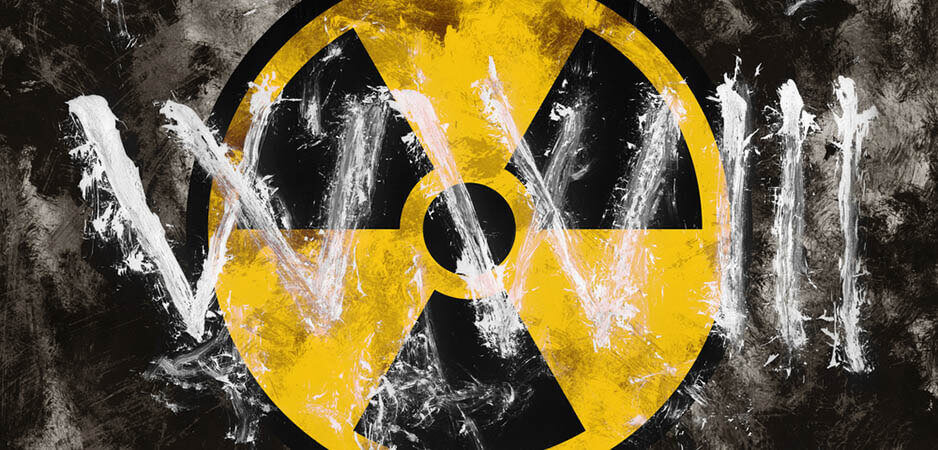Historically, trade wars are leading indicators of military wars, and the current protectionist sentiments could precipitate a major conflict despite the risk of mutually assured destruction.
When World War II ended, Washington decided to create a new rules-based world order. International institutions and free trade were to be the twin pillars of this new order. The big powers in the world were mortally scared of another conflict and decided that some form of cooperation was the wisest course of action.
In Europe, the two world wars had destroyed millions of lives, smashed societies and wrecked economies. In the aftermath of the war, Robert Schuman inspired Belgium, France, Germany, Italy, Luxembourg and the Netherlands to form the European Coal and Steel Community, setting in motion a process of integration that would lead to the European Union. Even the communists got in on the act. The Warsaw Pact was as much about trade and economic ties as about defense and military ties.
Bit by bit, the former colonies of European powers also embraced trade. The Association of Southeast Asian Nations (ASEAN) was formed in 1967, the Caribbean Community (CARICOM) in 1973 and Mercosur in 1991. Once the Soviet Union fell in 1989, the US pushed a new era of trade liberalization and the World Trade Organization (WTO) was born in 1995. The brave new world had arrived and Francis Fukuyama declared it was the end of history.
THE PARTY OF DAVOS IS KILLING THE LITTLE GUY
The WTO’s World Trade Report 2013 tells us that merchandise exports rose from $2 trillion in 1980 to $18.2 trillion in 2011 achieving a growth rate of 7.3%. Importantly, commercial services trade rose even faster at 8.2%, from $367 billion to $4.2 trillion during the same time period. Unlike the assertions of The Economist and other ideologues, free trade does not benefit everyone similarly and is not good for everyone. For instance, Ghanaians benefit less from selling cocoa than Belgians who sell chocolate. Workers in Alabama suffer when their factory is moved to Guangdong.
In 2015, one of the authors made the argument that trade is good, but not for everyone. It may not be a zero-sum game, but it often produces both winners and losers. Britain won in the free trade system it imposed on India and China. Growing opium in India and selling it in China brought famine for the brown people and addiction for the yellow man, while making the lily white traders of the British East India Company rather rich.
An important fact that champions of free trade overlook is that incredible trade growth since 1980 has also been accompanied by the return of 1920s-style inequality. To be fair, this occurred less due to trade and more because of some truly awful policy choices by both political leaders and central bankers. Taxing Warren Buffett at a lower rate than his secretary is not exactly fair. Allowing hedge funds, private equity shops and the likes of Apple to incorporate in offshore tax havens and avoid paying their fair share for roads, hospitals and schools is far from wise. Such is the state of affairs that men like Steve Wozniak, the former partner of Steve Jobs, are having deep misgivings.
Encouraging banks to merge so they became too big to fail throughout the 1990s was shortsighted, if not stupid. Allowing commercial banks to merge with investment banks and to play footsie with savings of hardworking families was negligent, if not criminal. Bailing the big banks out with taxpayer money and making them even bigger to fail was certainly unwise, if not a historic blunder. To top it all, quantitative easing, the de facto printing of money, has been a bonanza for the wealthy who own assets and a disaster for the poor who cannot afford to buy homes, shares or any other asset.
Steve Bannon, the former chief strategist of US President Donald Trump, rightly castigates George W. Bush and Barack Obama for destroying “the little guy.” These two leaders certainly played their part in creating a system that has capitalism on the upside and socialism on the downside. Naturally, millions, if not billions, have lost faith in the global economic system. Free trade has been an integral part of this system and, therefore, come under heavy artillery fire.
BEGGAR-THY-NEIGHBOR IS BACK
In a highly unequal society, Adam Smith’s Presbyterian proposition about “truck, barter, and exchange” between the baker, the butcher and the brewer breaks down. In Latin America, the descendants of the conquistadores own almost all of the land and the vast majority of the wealth. They send their children to study in the US, buy German cars and spend their holidays in Europe. The descendants of the subjugated native tribes and enslaved African immigrants have few skills to sell in a global marketplace. They can either become the servants of the rich or embark on careers in crime. Tellingly, 12 of the most violent cities in the world are in Latin America, the “most unequal region” on earth — not Iraq, not Afghanistan and not even Yemen.
In the unequal US, things are not rosy either. St. Louis is the 13th most violent city in the world, Baltimore the 21st, New Orleans the 41st and Detroit the 42nd. The inhabitants in these cities and many others can no longer compete in the global labor market. It is little surprise that protectionist sentiments have been on the rise. Trump came to power on the back of it. On November 20, 2016, one of the authors took the view that his election ended the post-Soviet era of trade liberalization.
The US, the greatest cheerleader for free trade, has now firmly turned protectionist. It has imposed tariffs not only on seemingly hostile China, but also supposedly friendly Canada. The long-forgotten 1930s-style “beggar-thy-neighbor” policies are back in fashion. Bannon is going around the world trumpeting “economic nationalism” and damning “the party of Davos.”
 Populism is on the rise from the Philippines to Brazil. Even Europe is under siege. Brexit is a fait accompli and Italian leader Matteo Salvini seems to be pointing a submachine gun at the EU. Populists are gunning for globalists worldwide and “the Davos man” has turned into a term of derision.
Populism is on the rise from the Philippines to Brazil. Even Europe is under siege. Brexit is a fait accompli and Italian leader Matteo Salvini seems to be pointing a submachine gun at the EU. Populists are gunning for globalists worldwide and “the Davos man” has turned into a term of derision.
THE PRESSURE COOKER IS HEATING UP
Less than a hundred years ago, the beggar-thy-neighbor of the 1930s ended in World War II. A hundred years after the ceasefire that ended World War I, Chinese economist Qian Liu has queried whether economic crisis could lead to World War III.
These authors agree with Qian’s assessment of the global economy. By flooding global markets with dollars, euros and other currencies, central bankers might have staved off another global depression, but they did not solve any underlying problem. Qian likens this policy to “an adrenaline shot to jump-start an arrested heart; it can revive the patient, but it does nothing to cure the disease.” As Qian rightly points out, thanks to central bankers, global asset prices are higher than those prevailing before 2008 and housing prices in the US are now 8% higher than they were at the peak of the property bubble in 2006. Furthermore, global debt has hit a record high of $247 trillion with little chance of much of it being repaid.
In such a setting, Trump’s economic war with China could have far-reaching consequences. The Middle Kingdom’s export-oriented model and its $34 trillion debt bomb are under severe threat. China’s quarterly growth rate has plunged to a nine-year low of 6.5%, prompting Vice-Premier Liu He to publicly appeal for patience. Chinese stocks have plunged over 30% in 2018 and there are fears of further meltdown. The Middle Kingdom feels besieged by Uncle Sam and has responded by challenging the US Navy in the South China Sea.
India, China’s giant neighbor, is not doing much better. It is facing a massive financial crisis, employment stagnation and a steep decline in private sector investment. A sense of stasis, has overwhelmed the country. Institutions have collapsed in the country, with bitter feuds in its security agencies and various factions of its corrupt and dysfunctional bureaucracy. As China has made inroads in Nepal, Sri Lanka and the Maldives, India has behaved like a cat on a hot tin roof and hugged the US closer.
Even as India feels threatened by China, Pakistan is paranoiac about India. Islamabad is knocking on doors of the International Monetary Fund (IMF) for an ominous 13th time. The country is an economic basket case. Socially, religious radicalism is on the rise. Politically, its elite is parasitic and Imran Khan, the charismatic former playboy-turned-anti-corruption crusader, is green behind the ears. The new prime minister has just returned to Islamabad after begging in Beijing, Pakistan’s new patron as Washington’s ardor for its former Cold War ally wanes inexorably. With plenty of weapons and some nuclear weapons floating around, Pakistan could implode or explode in the near future, triggering a regional or even a global war.
Russia, the successor state to Soviet Union, is in disarray. While sanctions have yet to effect macroeconomic stability, its long-term prospects are bleak. Zbigniew Brzezinski, Jimmy Carter’s former adviser, envisages Russia “experiencing the latest convulsive phase of its imperial devolution.” Naturally, Vladimir Putin wants to fight this trend and preserve Russia as a great power. He has struck back at the US in Georgia, Crimea and Syria. Now, he is intervening in the internal matters of western nations. Arguably, Putin’s greatest success has been manipulation of the 2016 American elections.
As one of the authors argued in 2015, the Middle East is experiencing its version of the Thirty Years’ War. Turkey has memories of the Ottoman Empire and aims to emerge as a modern, populist leader of the Muslim world. With its recent revolutionary tradition and military experience, Shia Iran is the most cohesive power in the region. Bush’s Iraq War has allowed Iran to expand the arc of its influence to Iraq even as Iranian influence in places like Lebanon, Syria and Yemen continues to grow. Saudi Arabia neither has the imperial memory nor the military tradition of Turkey or Iran, but the kingdom has plenty of oil money and, in the words of Fair Observer contributor Ian McCredie, a master plan to bring the Middle East under Saudi control. Along with the numerous simmering conflicts in the region, the prospects of an explosive ménage à trois are not exactly remote.
Not only regional powers, but also global powers such as the US, France and Russia are now involved in conflicts or proxy conflicts in places like Libya, Syria and Afghanistan. A back of the envelope calculation reveals that governments representing 25% of the world population are fighting in the Middle East. If we include Afghanistan, this number rises to a worrying 50%. Remember, this figure does not take into account civil wars in Africa, insurgencies in places like the Caucasus or Kashmir, and ridiculous levels of criminal violence in Latin America. It is hardly surprising that there are now 68.5 million forcibly displaced people worldwide, the highest number since World War II.
If an alien was visiting earth, it would find the world already at war. If that alien wanted to make money, it would buy defense stocks. Demand for guns, bullets, tanks, fighter jets, warships and other matériel will inevitably increase. Like classical economics, the mutually assured destruction doctrine assumes human beings are fundamentally rational and the existence of nuclear weapons will make leaders shy away from World War III. Yet one rogue military commander could fire off chemical or even nuclear weapons, triggering such a war.
In the words of Friedrich Nietzsche, “Madness is something rare in individuals — but in groups, parties, peoples, and ages, it is the rule.” And we are now living in a big, bad and mad world.
The views expressed in this article are the author’s own and do not necessarily reflect Fair Observer’s editorial policy.
Support Fair Observer
We rely on your support for our independence, diversity and quality.
For more than 10 years, Fair Observer has been free, fair and independent. No billionaire owns us, no advertisers control us. We are a reader-supported nonprofit. Unlike many other publications, we keep our content free for readers regardless of where they live or whether they can afford to pay. We have no paywalls and no ads.
In the post-truth era of fake news, echo chambers and filter bubbles, we publish a plurality of perspectives from around the world. Anyone can publish with us, but everyone goes through a rigorous editorial process. So, you get fact-checked, well-reasoned content instead of noise.
We publish 2,500+ voices from 90+ countries. We also conduct education and training programs
on subjects ranging from digital media and journalism to writing and critical thinking. This
doesn’t come cheap. Servers, editors, trainers and web developers cost
money.
Please consider supporting us on a regular basis as a recurring donor or a
sustaining member.
Will you support FO’s journalism?
We rely on your support for our independence, diversity and quality.






